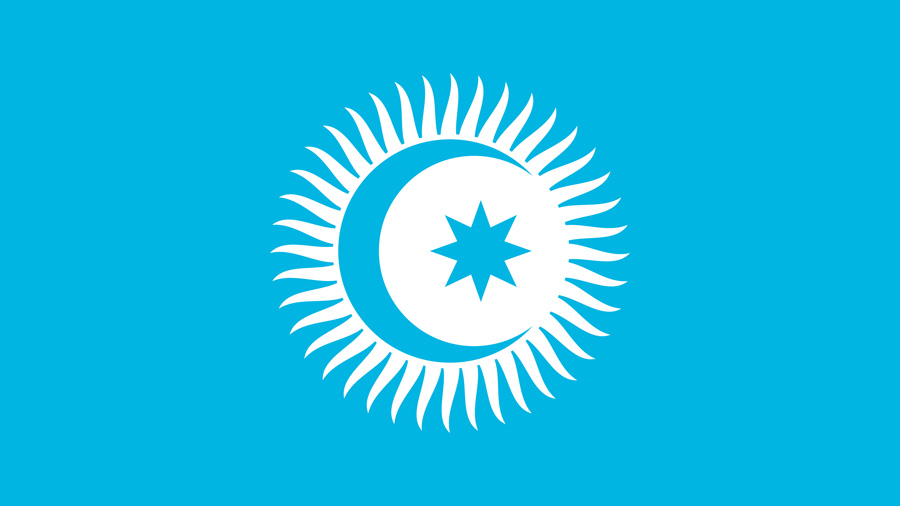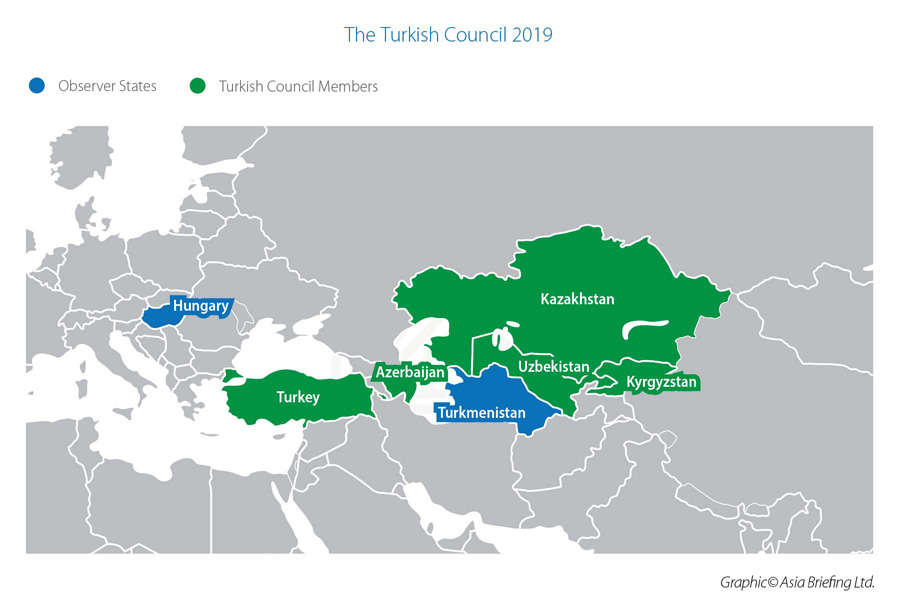Uzbekistan Joins Turkic Council
Op/Ed by Chris Devonshire-Ellis
Regional Bloc Of Underlying Importance In Eurasia
The Turkic Council, HomePage which promotes trade, social and economic links amongst its members, approved Uzbekistan as its fifth member on September 15th. The inclusion of Uzbekistan means that only Turkmenistan in Central Asia and South Caucasus remains outside the Turkic-speaking group. Hungary is also an observer state.
The Turkic Council was founded in 2009.
The declared msision of the Council reaffirms the will of Member States to adhere to the purposes and principles enshrined in the Charter of the United Nations, and defines the main objective of the Turkic Council as further deepening comprehensive cooperation among Turkic Speaking States, as well as making joint contributions to peace and stability in the region and in the world. Member States have confirmed their commitment to democratic values, human rights, the rule of law, and principles of good governance. Known as the Nakhchivan Agreement, the charter sets out the main purposes and tasks of the Organization as follows:
- Strengthening mutual confidence and friendship among the Parties;
- Developing common positions on foreign policy issues;
- Coordinating actions to combat international terrorism, separatism, extremism and cross-border crimes;
- Promoting effective regional and bilateral cooperation in all areas of common interest;
- Creating favorable conditions for trade and investment;
- Aiming for comprehensive and balanced economic growth, social and cultural development;
- Expanding interaction in the fields of science, technology, education, health, culture, sports and tourism;
- Encouraging interaction of mass media and other means of communication;
- Promoting exchange of relevant legal information and enhancing legal cooperation.
The main decision-making and governing body of the Turkic Council is the Council of Heads of State, which is presided over by the President whose country holds the chairmanship. The chairmanship rotates on an annual basis. All activities of the Turkic Council are coordinated and monitored by its Secretariat, which is located in Istanbul in accordance with the Nakchivan Agreement. Presidents meet once a year in a previously determined Turkic city. Senior officials as well as other Ministers and government officials, all meet on a regular basis.
Historically the Turkic culture has had a huge impact on Eurasia, with Turkic speaking communities still existing in the Far East, while the reach extended far into Russia, Mongolia and China, as well as into Africa. Their origins are believed to be in what is now North-Eastern China. The most notable modern Turkic-speaking ethnic groups include Turkish people, Azerbaijani’s, Uzbeks, Kazakhs, Turkmens, Kyrgyz and Uyghur peoples.
Related Reading
- Turkeys Pivotal Role in China’s Belt and Road Initiative with Europe, Central Asia, and the Middle East
- Uzbekistan Offers PPP Deals To Foreign Investors In Banking & Infrastructure
- Free Trade Zones Linking China, Russia & The Eurasian Economic Union
About Us
Silk Road Briefing is written by Dezan Shira & Associates. The firm assists foreign investors and advises Governments throughout Asia in facilitating trade and investment into the region, and maintains 28 offices throughout China, India, ASEAN and Russia. We also provide Belt & Road advisory and intelligence services. Please email us at silkroad@dezshira.com for enquiries or visit us at www.dezshira.com







